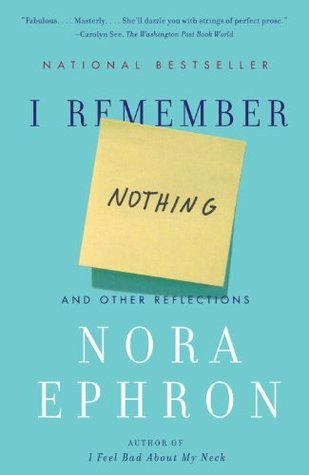More on this book
Community
Kindle Notes & Highlights
It was exciting in its own self-absorbed way, which is very much the essence of journalism: you truly come to believe that you are living in the center of the universe and that the world out there is on tenterhooks waiting for the next copy of whatever publication you work at.
Being a clipper was a horrible job, and to make matters worse, I was good at it.
I believed in journalism. I believed in truth. I believed that when people claimed they’d been misquoted, they were just having trouble dealing with the sight of their words in cold, hard print.
I believed that when political activists claimed that news organizations conspired against them, they had no idea that most journalistic enterprises were far too inept to harbor conspiracy.
Alcoholic parents are so confusing. They’re your parents, so you love them; but they’re drunks, so you hate them. But you love them. But you hate them. They have moments when they’re still the people you grew up idolizing; they have moments when you can’t imagine they were ever anything but monsters. And then, after a while, they’re monsters full-time. The people they used to be have enormous power over you—it will be forty years before you buy a red coat (and even then, you will wear it only once)—but the people they’ve turned into have no power over you at all.
You always think that a bolt of lightning is going to strike and your parents will magically change into the people you wish they were, or back into the people they used to be. But they’re never going to. And even though you know they’re never going to, you still hope they will. My
You can never know the truth of anyone’s marriage, including your own.
It’s a delightful letter, isn’t it? I have a pile of her letters. When I look through them, it all comes back to me—how much I’d loved the early letters, how charmed I’d been, how flattered, how much less charming they began to seem, how burdensome they became, and then, finally, how boring. The story of love.
But the truth is that any excuse will do when this sort of romance comes to an end. The details are just details. And the story is always the same: the younger woman idolizes the older woman; she stalks her; the older woman takes her up; the younger woman finds out the older woman is only human; the story ends. If the younger woman is a writer, she eventually writes something about the older woman. And then years pass. And she herself gets older. And there are moments when she would like to apologize—at least for the way it ended. And this may be one of them.
Giving up the fantasy that you want to own a restaurant is probably the last Piaget stage.
My religion is Get Over It.
People always say that once it goes away, you forget the pain. It’s a cliché of childbirth: you forget the pain. I don’t happen to agree. I remember the pain. What you really forget is love.


